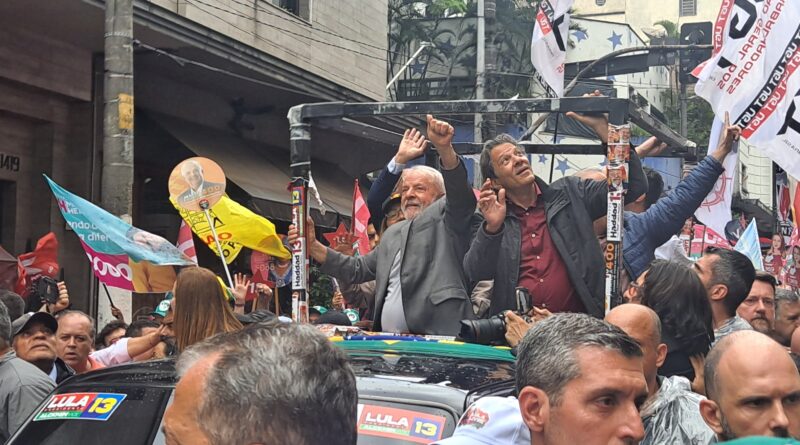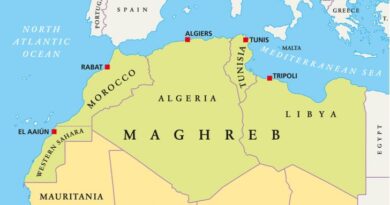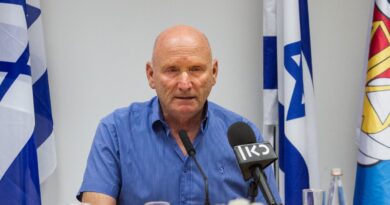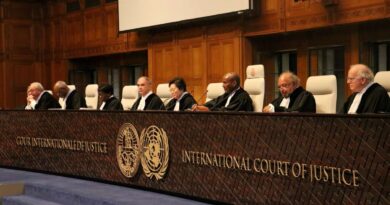Lula does not get the absolute majority and will play it against Bolsonaro in the second round
JUAN MIGUEL MUNOZ
São Paulo
Luiz Inácio Lula da Silva won yesterday in the first round of the presidential elections held in Brazil. But it was a bitter triumph. The leader of the Workers' Party (PT) obtained 48,43% of the votes, while his rival, the incumbent president, Jair Bolsonaro, reached 43,20% of the votes. A defeat flavored with victory. On October 30 both will meet in the second round. Until that date the fight between both candidates will be fierce.
The countenances of both political leaders were very expressive well into the night. Although he is a born fighter and his chances of victory are still obvious, Lula, who appeared in São Paulo, was the image of disappointment. He promised to persevere and said that he never managed to win the first round of the elections. Bolsonaro, on the other hand, was confident and defiant in Brasilia. On the eve of the elections, the polls predicted that Lula da Silva could garner 50% plus one of the votes to become president as of January 1. But the polls failed miserably. And not because Lula was not close to the absolute majority, but because Bolsonaro got almost 10 points more than the polls predicted. After knowing the result, the president attacked Datafolha and Ipec, the main polling companies in the country. Members of the Bolsonarista campaign had already warned in recent weeks that their private polls placed the difference between the main candidates at four or five points. They fully agreed.
In this country, of 215 million inhabitants and 156 million voters, elections for governor were also held in the 26 states and in the Federal District, and elections for Congress, in addition to electing a third of the Senate. And it is in this area of the Legislature that Bolsonaro's victory was resounding. The president's party and his allies won 99 of the 513 that the Chamber of Deputies has, an excellent result in a Chamber that is always very fragmented. He also won 14 of the 27 senators at stake and the triumph of several governors, some of them former ministers of Bolsonaro who generated scandals for their environmental policies or measures to combat the Coronavirus. In São Paulo, the most populous state (47 million inhabitants, 22% of the Brazilian population) and the country's thriving state, Bolsonarist candidate Tarcisio Gomez surpassed candidate Fernando Haddad of the PT by seven points. Polls gave Haddad an eight-point lead.
The elections show a trend of enormous importance for the future of Brazil: Bolsonarism is not a passing phenomenon; It was not a reaction to the weariness of a good part of the electorate that in 2018 punished the PT after 14 years in power. The extreme right has taken root in an eminently conservative country that sees how evangelicalism, a great ally of Bolsonaro and the right-wing candidates, advances unchecked before the astonished gaze of the progressive parties, unable to react, at least for now. Political analysts were of the opinion last night that the polls have failed to detect the magnitude of evangelical support for conservative candidates. And everything indicates that issues such as the mismanagement of the pandemic have not had the expected incidence among his followers.
But the elections have also made it very clear that the outlook for the left is very complicated for the future. Apart from the growth of Pentecostalism and neo-Pentecostalism, the PT candidates had a poor performance in the States of the South region (Rio Grande do Sul, Santa Catarina and Paraná), Southeast (São Paulo, Minas Gerais, Rio de Janeiro and Espirito Santo). ) and the Center-West (Goias, Mato Grosso, Mato Grosso do Sul and Brasilia). These are the three most prosperous and populated regions of Brazil. The Northeast region (Bahía, Alagoas, Sergipe, Pernambuco, Paraíba, Río Grande do Norte, Ceará, Maranhao and Piauí) continues to be the bastion of Lula, of Pernambuco origin, where he won two thirds of the votes.
However, Lula showed that he continues to have charisma, that a good part of the electorate considers that he was a good leader, and that he retains his electoral hook. Just one example: in the State of São Paulo, the PT candidate, Fernando Haddad, won three million votes in the 2018 elections. Lula exceeded 10 million yesterday. However, if the former trade unionist manages to win in the second round, he will have to face an extremely complex political landscape.
The Bolsonarist caucus in the Chamber of Deputies and in the Senate will do everything possible to undermine his government and his presidency. That aside from the difficulty of negotiating with the parties of the so-called Centrão, a conglomerate of regional groups and bosses who sell their support without modesty to the highest bidder.
Who will be installed in the Planalto Palace, seat of the presidency from January 1? Bolsonaro is confident in coming back from behind and in the drive that he has shown in the first round. The far-right president promised yesterday to explain to the electorate that the economic situation is gradually improving and that he will do so more in the coming months. And he warned – giving as examples other countries on the continent with governments of the left (Argentina, Venezuela, Nicaragua) or that have recently turned to the left (Chile, Colombia) that changes are sometimes harmful.
Lula will presumably be able to count on the support of Simone Tebet, the candidate who received more than 4% of the vote and who has shown her animosity towards Bolsonaro throughout her campaign. With another historic politician and four-time presidential candidate, Ciro Gomes, it is not at all clear that Lula can count, despite her progressive program. What is certain is that the PT candidate will try to negotiate with the leaders of the PSDB –the historic center-right party of former president Fernando Henrique Cardoso (1994-2002)–, a party that has suffered a debacle at the polls: for the first time in 30 years his candidate for governor in São Paulo will not compete in the second round.
Juan Miguel Munoz is a journalist and lives in Brazil













